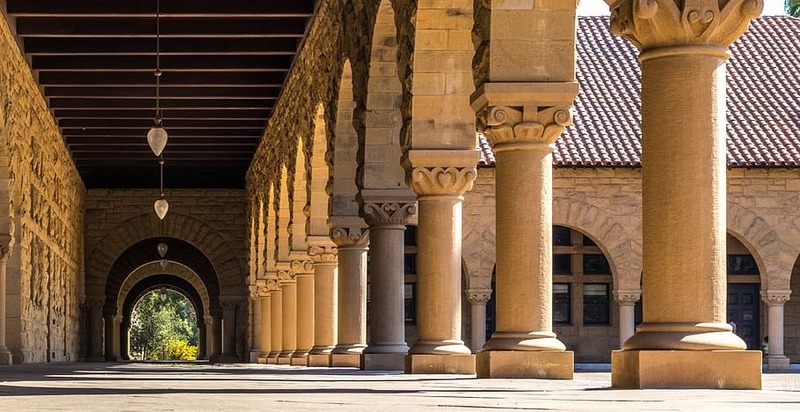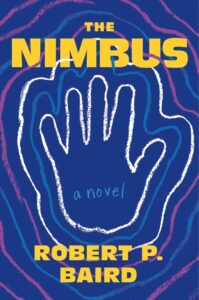
Interdisciplinary Magic: What the Humanities Can Reveal About Scientific Pursuits
Robert P. Baird on His Transformative Academic and Literary Journey From Engineer to Writer
I arrived at Stanford in the fall of 1996 with every intention of becoming a mechanical engineer and none of being a writer. Though I’d been a voracious reader since childhood, my tastes steered wide of anything that looked too literary. In elementary school I loved Madeleine L’Engle, C.S. Lewis, and J.R.R. Tolkien. In junior high I read every airport blockbuster by Tom Clancy, John Grisham, and Michael Crichton that I could get my hands on.
The English teachers at my high school did their best to open the aperture a little wider, but until I got to college the idea of Literature (always upper-case in the dictionary of my mind) remained for me a no-man’s-land of books too forbidding, too boring, or too much of both to be bothered with outside of school.
I left college knowing that the course of my life, my curriculum vitae, had been inalterably changed.
My reasons for choosing engineering as a major now seem impossibly flimsy, but I can make them make at least a little more sense when I remember that I belong to the last generation who grew up before the Internet saturated everything. Back then, without Wikipedia or Reddit or Google around—when “going online” was still a discrete, deskbound activity and not yet an existential condition—we were used to living among vast fogs of ignorance of a sort that seems unthinkable today. (Though of course we have other kinds.)
It was enough, apparently, to remember how much I’d liked construction toys when I was a kid—Lego, Erector, Capsela—and the welding class I took in 4-H. Enough, too, to fall back on a naive vocational arithmetic that made engineering the obvious option for someone who did well in math and science and was regularly confused when his English teachers started talking about vague business like symbols and themes. Never mind that I knew exactly zero working engineers, and had not the slightest idea how they generally spent their days.
*
By the time I got to Stanford, just as the first dot-com boom was getting underway, the university was in the midst of a minor identity crisis. Though the school was still as tech-centric as ever, it very badly wanted to be something more than a sunny MIT or a CalTech with an Olympic-caliber athletic department. Eager to assert itself as a peer of the Ivy League, and especially of Harvard, Stanford had decided to prove its liberal-arts bona fides by insisting that every department should require a writing class from its undergraduate majors.
You can probably guess how the engineering faculty felt about this demand from the fact that their answer to the requirement was E102M, a one-unit course called “Technical and Professional Writing” that was taught by a visiting instructor who (if memory serves) didn’t even get to call himself an adjunct professor. One hour a week, for ten weeks, we learned to write memos and technical reports. We formatted resumes. We put together presentations. Probably the whole experience would have been as forgettable as it was designed to be had it not been for the day, towards the end of the term, when the instructor stopped to justify the endeavor.
Maybe you think, he told us, that as working engineers you’ll spend most of your time doing actual engineering. Maybe you imagine yourself building scale models of complicated mechanisms, or drafting designs for a circuit board, or running a CNC machine in a shop. Allow me to disabuse you of that notion. Everyone in this classroom should think of themselves not as future engineers but as future managers. And when you become a manager, as most of you inevitably will, you’re going to spend most of your waking hours dealing with the kind of documents we’ve been producing in this class.
I would later learn that this little speech was not exactly true, or at least not for everyone. (One of my lab partners went on to help design the iPhone and Apple Watch.) But my instructor’s warning was bracing. It hit me hard not least because it was precisely the hands-on parts of my engineering education—building foamcore catapults, learning to run a lathe, pouring molten bronze—that had made the endless problem sets and ego-bruising tests seem worth all the pain.
*
As it happened, the same quarter I took E102M I shared a dorm room with an English major. For an assignment in one of his classes, he memorized the eight stanzas of Wallace Stevens’s “Sunday Morning.” Up to that point in my life I was still the kind of person who could say, a little too easily, that I didn’t “get” poetry, as though it were a cryptogram whose key I’d failed to discover. At root I had a hard time believing that words could hold, or generate, as many meanings as my teachers insisted they did. It’s true that a few books, notably Toni Morrison’s Beloved, had already tested my skepticism on this point, but it was my roommate’s devotion to “Sunday Morning” that prompted the first sustained breach. My interest in his interest in the poem soon became an interest in the poem itself, and that in turn grew into a lifelong love of Stevens’s work more broadly.
It would be too much to suggest that engineering contributed directly to my nascent literary sensibility. But I also don’t think it’s an accident that I found my way into modern poetry through the constrained vitality of Stevens’s pentameter. Many of my engineering classes were concerned with analyzing the ways even simple structures could mediate and marshal a stunningly complex interplay of invisible forces. It didn’t take a huge leap to understand that a poem no less than a bridge might work in similar fashion.
Nor do I think it’s any real surprise that my next poetic discovery was Dante, whom I learned to read in a class taught by a professor recommended by my English-major roommate. The patterned intricacy of Dante’s terza rima was dazzling enough—as satisfying, for a certain kind of person, as a Japanese watch movement or Incan stonemasonry. But then, too, there was the imaginative rigor of the posthumous realms Dante conjured from those lines, which had, over the centuries, attracted mathematical minds possessed of vastly more sophistication than my own. (In 1588, for instance, Galileo applied for a teaching job at the University of Pisa with two lectures on the physical characteristics of Dante’s hell; he estimated, among other things, how thick the roof of hell would have to be to keep it from collapsing.)
It feels important to remember that universities might still, on occasion, act as precisely the sort of transformative refuge they have always pretended to be.
By the time I graduated college, in the spring of 2000, my conversion to the humanities was more or less complete. Though my experiences with Dante, with Stevens, and with E102M did not cause me to abandon M.E. right away—I’d put in too much work to walk away from a Stanford engineering degree completely—I left college knowing that the course of my life, my curriculum vitae, had been inalterably changed.
*
In years past, when people have asked how it happened that I ended up writing a doctoral dissertation on Dante after studying mechanical engineering as an undergrad, I often ducked the question with the help of a joke or demurral. The story was too pat, too earnest, too self-flattering. I was aware, too, that it was the kind of story that universities like Stanford were all too eager to tell about themselves—an uplifting college-brochure narrative of individualistic paideia and Bildung that obscured the often brutal sociological and economic realities of higher education in America.
It was also, obviously, a story of extreme privilege: the privilege of going to college in the first place, the privilege of attending Stanford, the privilege of knowing that I would graduate without student debt, and the privilege of making crucial decisions about the direction of my life in the midst of what looked like an endlessly booming economy. To celebrate the unearned good fortune of those privileges felt as crass in its way as praising the life-changing effects of a winning lottery ticket.
Yet now that higher education in America is facing an unprecedented existential threat—from the Trump Administration most directly, but also from the witless prophets of A.I. and the bigots, billionaires, and administrators who are terrified at the prospect that college students might learn to think for themselves—it seems like bad faith of a different kind to deny that college did for me what, at some fundamental and idealistic level, it was supposed to do. I can’t insist that an experience such as I had is sufficient to justify the extraordinary prestige, deference, and tax advantages universities enjoy. But at a time when the ambient depredations are forcing us all to look at the world afresh from first principles, it feels important to remember that universities might still, on occasion, act as precisely the sort of transformative refuge they have always pretended to be.
__________________________________

The Nimbus by Robert P. Baird is available from Henry Holt and Co., an imprint of Macmillan.
Robert P. Baird
Robert P. Baird grew up in Northern California, studied mechanical engineering and human biology at Stanford, and earned a PhD from the University of Chicago Divinity School. He has worked as an editor at The New Yorker, Harper’s Magazine, The Paris Review, Chicago Review, and Esquire and has published journalism, essays, and reviews in those magazines and other outlets. He lives in Brooklyn with his wife and children. The Nimbus is his first novel.



















